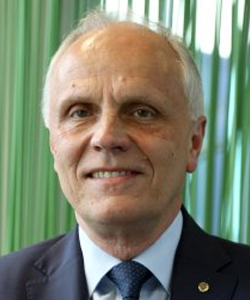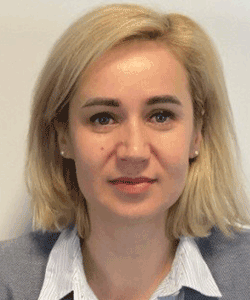
|
Laura CHIRILĂ Laura Chirilă is the National Contact Point for the European Research Council since 2022 at the Executive Agency for Higher Education, Research, Development and Innovation Funding (UEFISCDI). She obtained her M.A. and Ph.D. degrees in Chemical Engineering from “Gheorghe Asachi” Technical University of Iași, in 2007 and 2011, respectively. During the period 2013-2022 she has worked as researcher at The National Research and Development Institute for Textile and Leather, Bucharest, Romania, having experience in applied research, participating in many European and national R&D projects. |
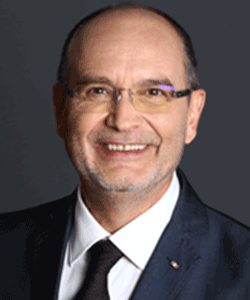
|
Prof. Adrian CURAJ
Prof. Adrian Curaj is the General Director of the Executive Agency for Higher Education, Research, Development & Innovation Funding (UEFISCDI), Romania and a former minister of education, science and innovation. Prof. Adrian Curaj is the head of the UNESCO Chair on Science and Innovation Policies at the National University of Political Studies and Public Administration, and a professor at the “Politehnica” University of Bucharest. He had been working as a consultant for the World Bank, UNESCO, UNIDO, ETF and EC for studies in Tertiary Education, Science and Innovation, and Foresight. Prof. Adrian Curaj is a member of the Board of Directors of the U.S. Fulbright Commission in Romania and fellow of the World Academy of Art & Science (WAAS).
|
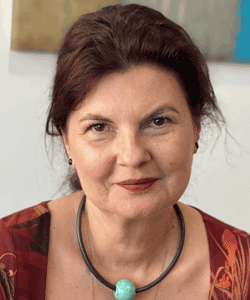
|
Dr. Antoaneta Victoria FOLEA Dr. Antoaneta Victoria Folea is a senior researcher and associate professor in the field of Social Sciences, with a PhD in Chemistry and a PhD in Political Sciences. She is a Monitoring Officer, expert evaluator and rapporteur with the European Commission for more than 15 years. Dr. Folea acted as Romanian national representative in the European Commission Programme Committees and in the Technical Secretariat of COST. She is former Programme Officer with DG Research & Innovation with the European Commission and an expert on Strategic Choices for Education Reform with the Institute of the World Bank. Currently, Dr. Folea is Head of Unit – NCP for Horizon Europe with the Executive Agency for the Financing of Higher Education, Research, Development and Innovation (UEFISCDI) in Romania. |
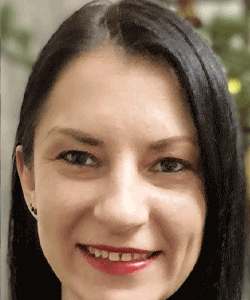 |
Alida TIMAR-GABOR Alida Timar-Gabor is professor of environmental radioactivity at Babeș-Bolyai University, Cluj-Napoca, Romania, where she received her PhD in physics in 2010 and her Habilitation in environmental science in 2015. There she established and currently leads the Luminescence and Electron Spin Resonance Dating Laboratories. Her main research interests are in the field of solid-state dosimetry with a focus on trapped charge dating methods and their application to geological problems. She successfully supervised over 10 PhD students in environmental science so far. In 2015 she was awarded an European Research Council (ERC) Starting Grant (INTERTRAP 678106). INTERTRAP successfully carried out geochronological investigations on records of past climate change over four continents and resulted in a significant improvement in our understanding of both the potential as well as the limitations of trapped charge dating methods. Her Consolidator Grant proposal submitted to the ERC in 2021 (PROGRESS 101086859), positively evaluated in step two of the above-mentioned call, sets out to developing novel provenance methods using ubiquitous minerals. |
|
|
Prof. Andrzej JAJSZCZYK
Andrzej Jajszczyk is Professor at the Department of Telecommunications, the AGH University of Science and Technology in Krakow, Poland and President of the Krakow Branch of the Polish Academy of Sciences. From 2011 to 2015 he served as the founding Director of the National Science Centre, a Polish research funding agency. He received Ph.D. from Poznan University of Technology in 1979. He was a visiting scientist at the University of Adelaide in Australia, Queen’s University in Kingston, Ontario, Canada, and Ecole Nationale Supérieure des Télécommunications de Bretagne, France. |
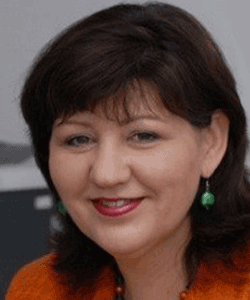 |
Mrs Iulia MIHAIL Mrs Iulia Mihail is Director in the Ministry of Research, Innovation and Digitalisation in Romania, the Directorate for European Affairs and International Cooperation. She has extensive experience in EU framework programmes coordinated action and as an expert evaluator with the European Commission, DG Research & Innovation. She is Horizon Europe National Contact Point (NCP) coordinator and Widening NCP. She is national representative to ESFRI and EOSC and national delegate in the Programme Committees Strategic, Research Infrastructures and Health. Since 2008, she is the Head of ROST, the ministerial national liaison office for R&D&I in Brussels. |
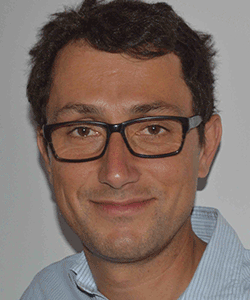 |
Costin RAICIU Costin Raiciu is Professor in the Computer Science Department of University Politehnica of Bucharest, Romania where he leads the Netsys research group. Costin has received a PhD from University College London in 2011 and his research to date spans the networking, operating systems and verification fields, where he has published more than 30 articles in top tier conferences and journals. Costin is best known for his work on Multipath TCP, a protocol he has helped design, build and standardise that is now used by Apple and Samsung mobile devices. Costin’s other notable contributions are to network verification (as part of CORNET, his ERC Starting grant project) and lightweight virtualisation. The quality of Costin's work has been recognized by awards at the top networking conferences (NSDI 2011, 2012, 2018, 2022; Sigcomm 2017, Eurosys 2021). In 2019, Costin has been awarded the Jochen Liedtke Young Researcher Award, a distinction that recognizes a rising star in European systems research. |
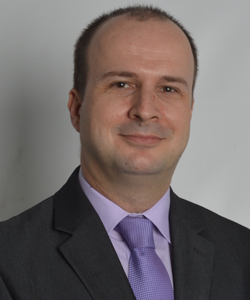 |
Andrei TERIAN Andrei Terian is Professor of Romanian literature in the Department of Romance Studies at the Lucian Blaga University of Sibiu. His specialties are twentieth- and twenty-first century Romanian literature, cultural theory, the history of modern criticism, and comparative and world literature. He has published numerous essays in international journals such as Textual Practice, Life Writing, Slovo, CLCWeb – Comparative Literature and Culture, World Literature Studies, Interlitteraria, ALEA: Estudos Neolatinos, Primerjalna književnost, etc. His latest books include the coedited volumes Romanian Literature as World Literature (Bloomsbury Academic, 2018), Theory in the “Post” Era. A Vocabulary for the 21st-Century Conceptual Commons (Bloomsbury Academic, 2021), and Beyond the Iron Curtain: Revisiting the Literary System of Communist Romania (Peter Lang, 2022). He is currently the PI of the ERC Consolidator Grant “A Transnational History of Romanian Literature” (TRANSHIROL, 2021–2026). |
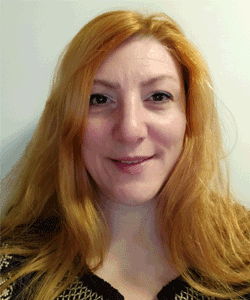 |
Alina Maria TOMOIAGĂ |
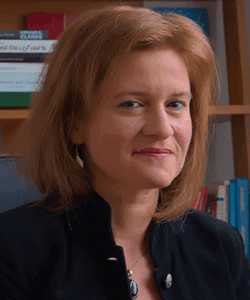 |
Laura VISU-PETRA |

